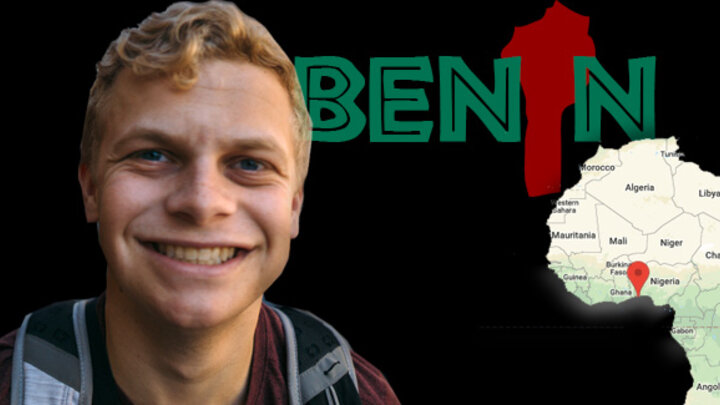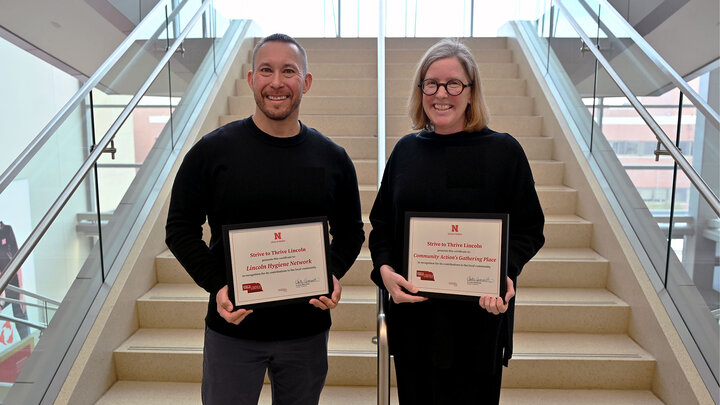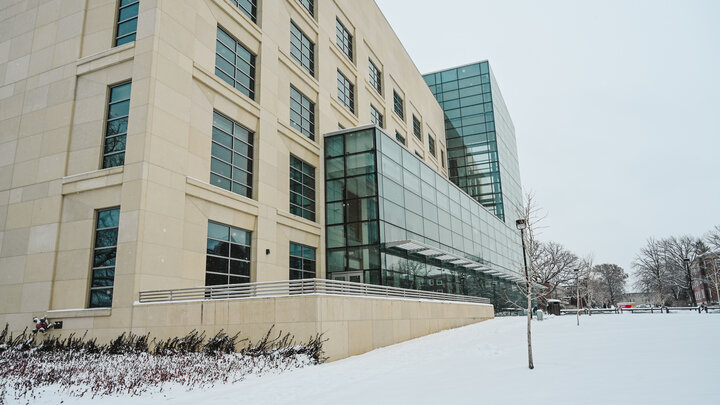Chase Caverzagie, a senior actuarial science major from Papillion, Nebraska, will travel abroad to Benin in West Africa this December. Prior to the trip, students in their International Studies – Business & Economics (BSAD 491) class are working on two projects to explore the complexities of international trade and business in the frontier market. In Benin, the students plan to interview Beninese and other African immigrants to better understand their culture and experiences. The students will then present their plans to expand tourism and create employment for young people in Benin. Caverzagie selected the global immersion program to experience the African culture firsthand and learn from those in the College of Business who are familiar with the region. He shared how he looks forward to “seeing new things and experiencing a culture much different than my own.”
Looking Back: Why Not Me? - January 5, 2019
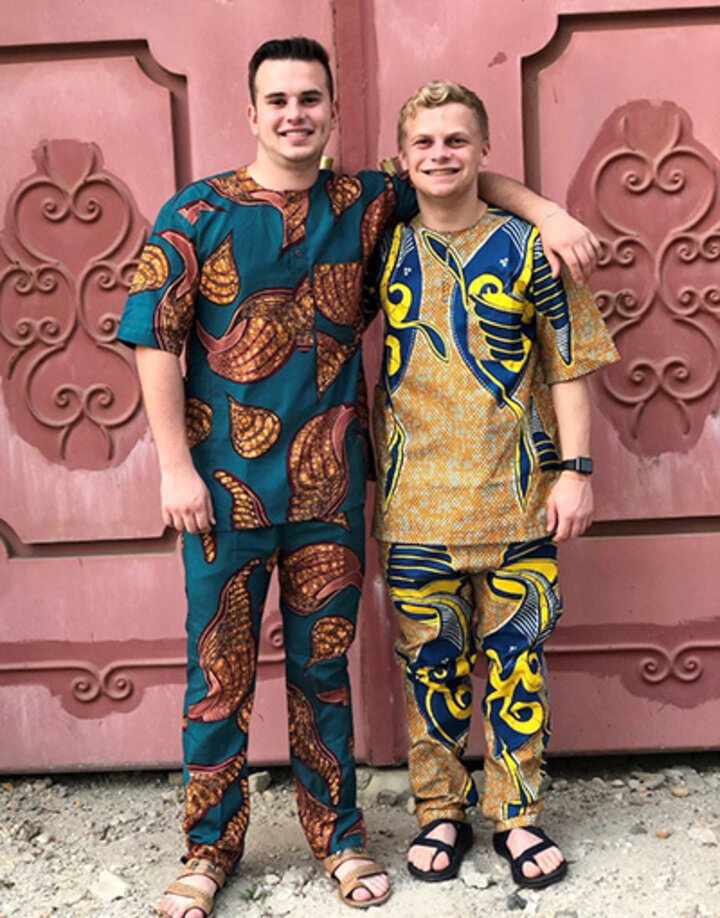
I can’t believe it’s already been almost two weeks since we got back! Reflecting back on the trip, I am so glad I decided to take advantage of this opportunity. My only regret is not going sooner, subsequently giving me more time to explore other international opportunities! Study abroad opportunities through Nebraska are a rare opportunity to immerse yourself in a different country’s culture in a safe, organized environment.
As mentioned in the previous blog post, we presented our final projects at the Obama Center. My main takeaway from the presentations was the “Why not me?” attitude of the people there. Allow me to explain. We heard several presentations from locals with ambitious goals in the farming and energy fields. To me, these projects seemed almost too complicated or difficult to execute. But these people were determined to make them a reality, often doing whatever it takes. A solar panel energy group met with several government officials to discuss potential funding opportunities and practicality of their endeavor. Meanwhile, a farmer training program has already issued hundreds of certificates verifying the competency of Beninese farmers. The founders of these projects were passionate about bringing meaningful development to Benin. Although they started with few resources, they work tirelessly for little or no pay with the hopes of changing their home country and eventually the world. They don’t wait for someone else to come along and execute their idea, or spoon-feed them resources and expertise — they do it on their own.
This “Why not me?” attitude is something I hope to bring back with me in my final semester. It’s easy to remain complacent, going through the motions of school, earning good grades, doing only what is expected of me. But why can’t I be the one who goes above and beyond to enact change? Even if my goals aren’t as ambitious as the Beninese entrepreneurs, I still have the power to make positive change around me. I wear a handmade orange, blue and red beaded bracelet I purchased from a vendor in Benin on my left wrist as a constant reminder: “Why not me?”
Presentations and Negotiations - December 23, 2018
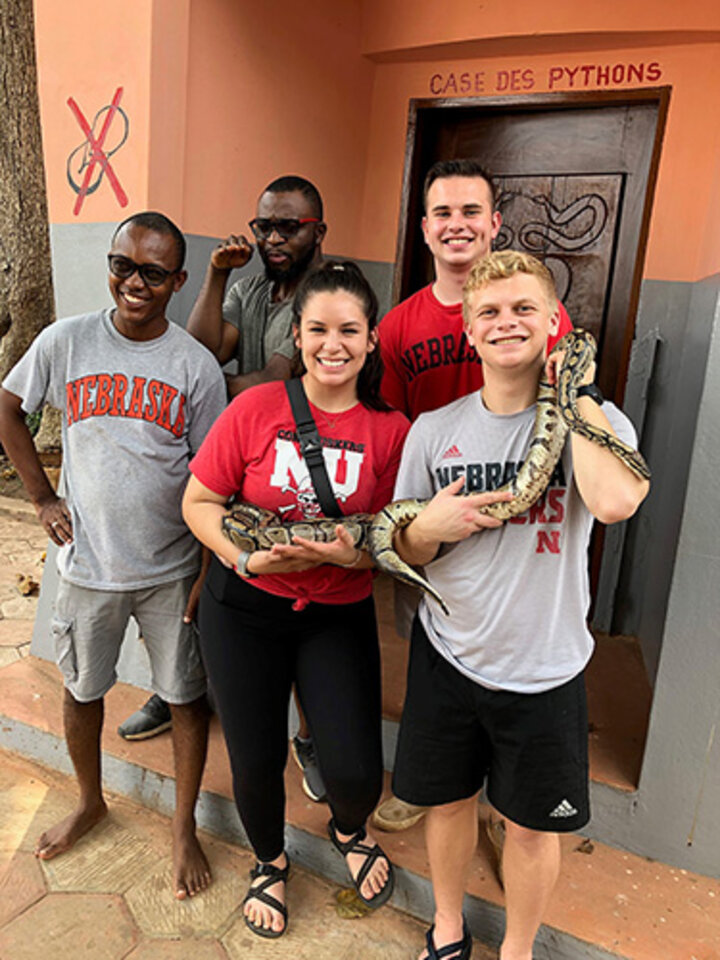
I can’t believe it’s our last day in Benin! Yesterday, we went to the Obama Center at the University in Cotonou, Benin, to present our projects from the BSAD 491 class. We each gave a 15-minute presentation to locals and other distinguished people, including a U.S. Embassy representative. It was fun to show off the work Tyler and I put into our project and get feedback and suggestions. We also heard two presentations from locals. One was about a startup company in Benin that provides poultry training and resources to local farmers and the other was about a solar power project to bring electricity to remote villages. My favorite thing about the Obama Center was the excitement and energy of the people that came to listen to our projects. They gave up their Saturday to listen to our work and provide resources to help improve our projects for nothing in return.
Aside from presenting about our projects, we also learned about local culture and history including the voodoo religion, slave trade from Beninand all-natural salt manufacturing. Benin was once a main slave export country for the French and Portuguese. We toured an old Portuguese fort that was converted into a museum. Learning about the slave trade from their perspective was somber but also very interesting. After the tour of the fort, we went to the python temple. Pythons are sacred in the voodoo religion and are closely related to the symbol of air. Our local tour guide, Boris, actively practices voodoo. It is far from the black magic portrayed in Hollywood movies. At the temple, we also got to handle some of their many pythons.
For our last day, we are going to a market in Cotonou to shop and negotiate with merchants. Negotiating is common when purchasing goods on the street. Our experiences negotiating so far have been mixed, with a steep learning curve on the first day. We were surprised with how persistent some sellers could be and felt bad about telling them “no” after engaging in negotiations. However, Dr. Osiri assured us this is common practice here and gave us a quick “Negotiating in Benin 101” lesson.
I am excited for our last day and can’t believe this trip is already almost over!
Exploring and Taking In The Culture - December 19, 2018
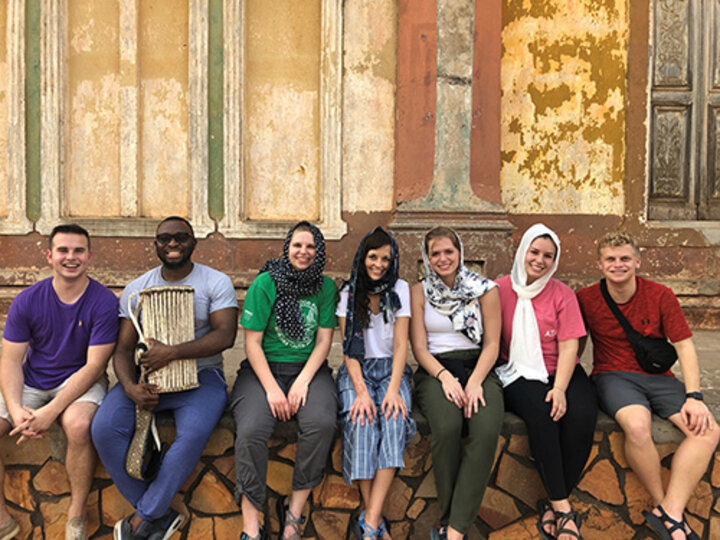
We just wrapped up our first three days in Benin! It has been fantastic experiencing the culture so far, talking with the locals and trying new foods –such as juice made from hibiscus nectar. On Monday, we had the opportunity to talk about Benin and the United States with locals at the U.S. Embassy, and the local university here. Many Beninese people are eager to practice their English while helping us better understand their African way of life. So far, we also have toured the zero-waste Songhai Farm, a Beninese ethnographic museum, mosque and several different restaurants.
One of my favorite experiences so far on the trip was when we were waiting outside to enter the Muslim mosque. Locals inside the mosque were praying, as it was about 3 p.m., and many of the children were out from school. The youngest were 2 or 3 years old, while the older kids were about 11. As we got out of the van, a small group of local kids started to gather. As is tradition in Benin, the kids put on masks, paper-chain skirts, hoods and gloves and danced while others beat drums to announce Christmas coming next week. Our group danced with the kids, laughed and shook hands with them. Even though we didn’t speak the same language (there are two dominant languages: the native Fon and French), we still were able to join in the celebration with them and have fun interacting spontaneously. More and more kids started coming out of the nearby houses to dance and sing with us. It became quite the party!
What has surprised me about this trip is the flexibility and freedom we have to do things that interest us while we are here. Our local guide in Benin, Boris, is great about asking for our input and adapting the program to include what intrigues us. For example, on our first day in Cotonou (the largest city in Benin), we wanted to go the beach, so Boris accompanied us there and told us stories about the fishermen on the shore. He and Professor Kalu Osiri encourage us to ask questions and are deeply interested in what we want to do and learn while we are here.
I am looking forward to the next few days as we travel to three different cities in Benin and present our final presentations that we worked on in class all semester!
First, A Trip To Japan – November 30, 2018
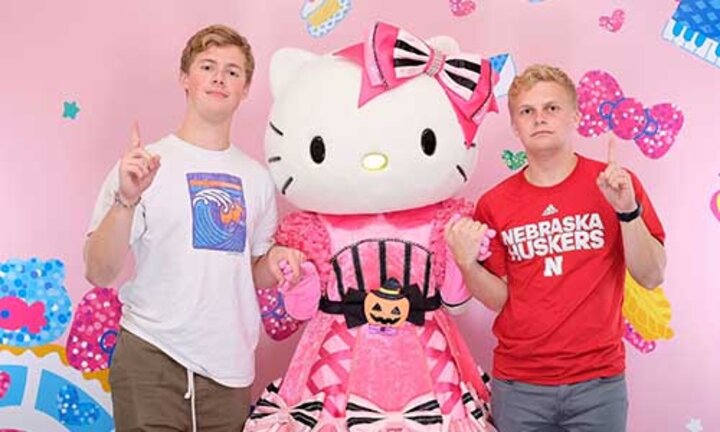
In my last blog, I mentioned that I will join my best friend, Will Schulenberg, on the trip to Beninafter he has been studying abroad in Japan all fall semester. About a month ago, I decided to test out my brand-new passport and take a week to fly out to Japan to visit him! This was the first time I had seen Will in over two months, and it was my first time leaving the United States. We got to do many cool things together such as visit several shrines, go to the Tokyo Observation Tower and Hello Kitty Land.
I especially enjoyed getting to challenge myself on a smaller scale before heading to Benin. For example, Will had me try all sorts of new foods such as octopus and dried sardine, and he even taught me a few Japanese phrases. Getting myself out of my comfort zone was scary at first, but eventually I settled in. Experiencing this trip with Will made me even more excited to unite with him in December in Benin! With finals in sight and our departure date quickly approaching, I can’t help but think how fast this semester has gone.
Preparing Our Class Project – November 8, 2018
Here we are: only 42 days from departure to Benin, Africa! Full disclosure – at first I was hesitant. Africa is so different. What would I eat? How would I communicate? How will I adjust to the time difference? I have to buy a passport. But that’s what makes this trip so great. When else in my adult life will I have the chance to go to West Africa for a week guided by great faculty and partners of the university? In my mind, this opportunity far outweighs any of my original excuses. Only 42 days out and I’m nothing but excited.
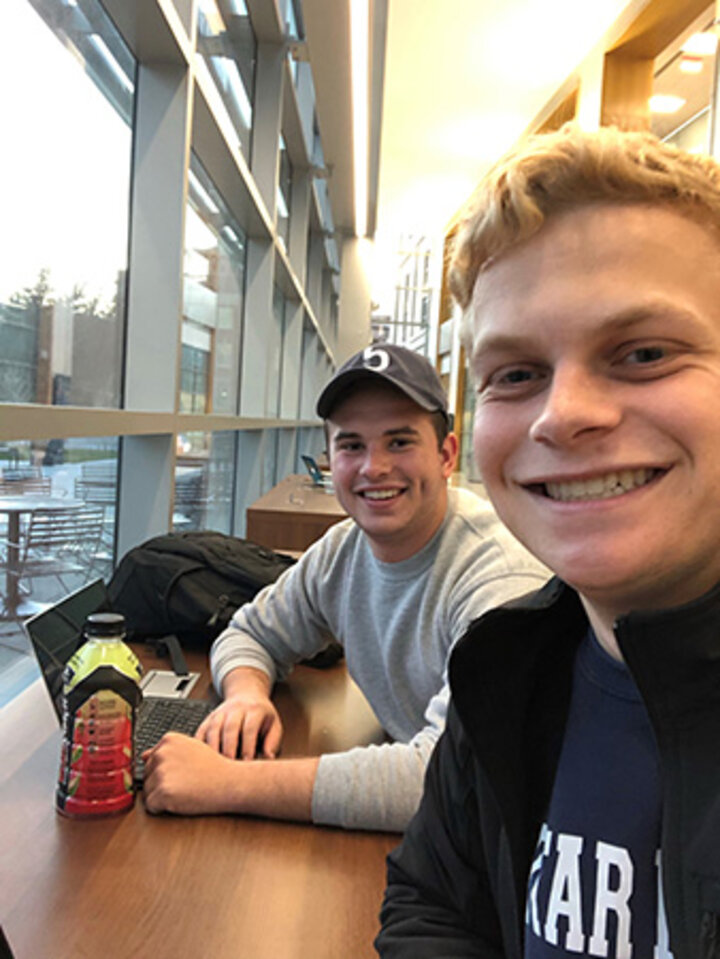
As part of the preparations and to receive academic credit for the experience, I am in class with the other six people on the trip. We are divided into two groups working on separate projects. One of my group members, Will Schulenberg, is currently studying abroad in Japan, so we work on projects mostly online. Occasionally, Tyler Jacobson and I meet up to work out details. The faculty leader of the trip, Dr. Kalu Osiri, challenged us to think of an innovative idea that could provide meaningful employment for 10,000 people over the next 10 years. Tyler came up with a great idea of hydroelectricity because there are many geographical and economic advantages to building this type of renewable energy source in Benin.
For the past five weeks, we have worked on putting together a business plan to jumpstart a micro hydroelectricity business in Benin that we will present to community leaders in the country. This includes everything from online research of different types of power plants to conducting our own primary research by designing and deploying a survey, and developing a potential marketing plan. To me, what is most fun about this project is we came up with our own idea. Most of the time, the project doesn’t feel like actual work. It’s fun developing a business plan for an idea we are passionate about.
As the days tick by, anticipation grows. Imagining myself in Africa is weird, but I am more excited now than I ever have been. See you in Africa in 42 short days.
